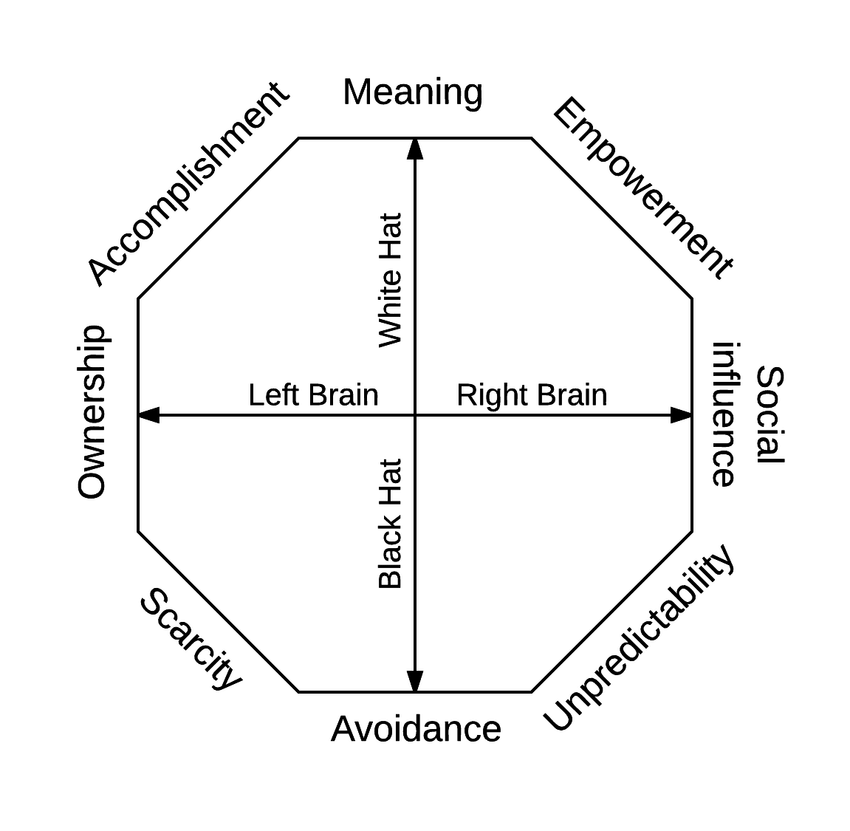We are more likely to feel worse about losing $100 than we do about gaining the same amount.
This is due to “loss aversion,” a concept in behavioral science developed by psychologists Daniel Kahneman and Amos Tversky.
Essentially, we’re more driven to avoid losses than to achieve similar gains.
Loss aversion can be so strong it triggers our fight-or-flight response, leading to actions we never imagined possible.
Take for example the fear caused by imminent danger.
Although it may stun a lot of us, for others it triggers a strong impulse to act.
While surfing the web, I came across an article about a man who saw a bear attack his wife.
From fear of not losing her, the man killed the bear with a few swings of his axe.


In any other circumstance, he wouldn’t stand a chance against an animal equipped with lethal instincts and features.
The story illustrates the powerful influence of loss aversion on our behavior. (or part of what we know as CD8 Loss and Avoidance)
Making a complete turnaround at the most fundamental level of motivation can also dramatically transform behaviors.
The unyielding spirit of a warrior is often characterized by an absence of fear, a trait expected to be inherent regardless of the adversary faced.
Common wisdom suggests that fear can cloud judgment and lead to failure, thus a warrior is often envisioned as fearless, especially before the heat of battle.
But the true relevance of this fearlessness is an intriguing question to ponder.
Take Jon Jones, the heavyweight UFC champion, as an example. In his case, it’s not the absence but the presence of fear that has helped him overcome his opponents.
Fear, in Jones’s experience, has been a catalyst for rigorous preparation and introspection.
Prior to his match with Rampage Jackson, Jones recounts experiencing recurrent nightmares of being knocked out within the first thirty seconds. These visions, coupled with Jackson’s intimidating behavior, weighed heavily on him.

Driven by the fear of losing and the physical toll of the match, Jones found solace and strength in deep prayer.
He sought divine intervention, asking God to give him capabilities that would make him triumph.
During this spiritual experience that took place right before the match, Jones had a profound vision, a ‘hierophany’ showing himself enveloped in feathers, a symbol of divine energy invigorating his very core.
This vision transformed him, imbuing him with almost otherworldly combat abilities. His reflexes, punches, and kicks were enhanced, surpassing all previous limits.
This spiritual awakening also offered Jones a strategic revelation. Contrary to the stance he followed in his nightmares, where he would always engage while standing, this time he chose to begin the fight by crawling towards Rampage, disrupting the foreboding narrative of his dreams.
This surprising approach not only confused his opponent but also shattered the mental barriers constructed by his own fears and visions.
From a behavioral science perspective, particularly through the lens of the Octalysis framework, Jones’s approach can be dissected into several motivational patterns.


Firstly, there’s Core Drive 8 – Loss & Avoidance: his fear of losing and sustaining injuries, amplified by Rampage’s ferocious persona and his own troubling dreams, led Jones to approach the match with utmost seriousness, as if it were his final bout.
Secondly, his deep prayer and the ensuing vision tapped into Core Drive 1 – Epic Meaning & Calling.
This spiritual journey made Jones feel connected to a higher power, transforming fear through divine intervention.
Lastly, the strategy of initiating the fight in a crawling stance exemplifies Core Drive 7 – Unpredictability & Curiosity.
This unexpected tactic disrupted both Jones’s mental narrative and his opponent’s strategy, allowing him to overcome the psychological barriers that had been established in his subconscious.
By harnessing the energies of Core Drives 8, 1, and 7, Jon Jones was able to convert his fear into a formidable motivational force, ultimately leading him to a remarkable victory over Rampage Jackson.
His story is a testament to the complex interplay of fear, faith, and surprise tactics in the realm of high-stakes competition.